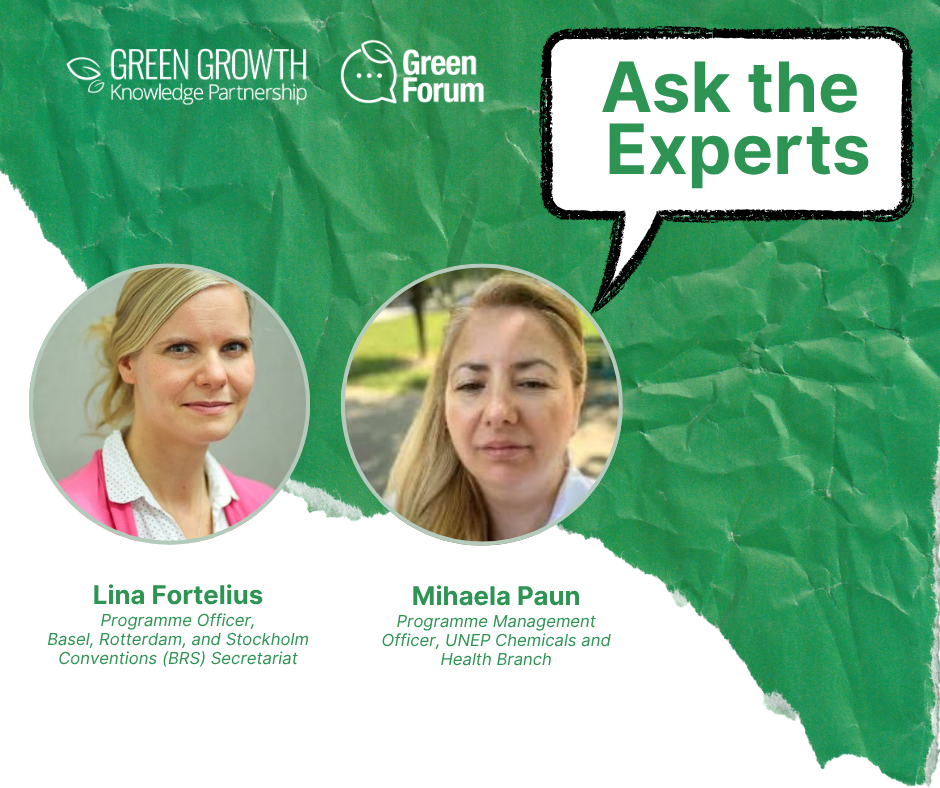Bosnia and Herzegovina (BiH) developed first National Implementation Plan (NIP) for the Stockholm Convention in 2016, with gender equality emerging as a cross-cutting priority. As highlighted in BiH NIP (Chapter 2.1.18), women are recognised as particularly susceptible to the harmful effects of hazardous chemicals:
- Reproductive systems make them more vulnerable to chemical impacts.
- Lipophilic characteristics of persistent organic pollutants (POPs) mean they accumulate in fat tissue, which is typically higher for women, leading to a greater risk of chemical storage in the body.
- Sensitive life stages such as pregnancy, breastfeeding, and menopause further increase vulnerability.
During 2025, BiH is undertaking the revision of its NIP. This process includes an in-depth analysis of activities implemented so far and the planning of new measures to strengthen chemicals and POPs management. Gender equality issues will again be integrated as a fundamental cross-cutting theme, ensuring that the specific needs and vulnerabilities of women continue to be addressed in line with international commitments and national priorities.
Legal and Institutional Framework
BiH has established a solid legal and institutional framework to advance gender equality. The Law on Gender Equality in BiH (Official Gazette of BiH, No. 16/03, 102/09 and 32/10) sets obligations for government institutions, supported by Unique rules for processing requests for assessing violations of the Law on Gender Equality in BiH (Official Gazette of BiH, No. 71/12).
Key institutions include the Agency for Gender Equality of BiH, the Gender Centres of the Federation of BiH and Republika Srpska, and the Commission for Gender Equality within the Parliamentary Assembly. Each ministry at entity, cantonal, and municipal levels has gender focal persons, with commissions and coordinating committees established at lower levels of government. This institutional landscape, supported by international organizations such as UNDP, UN Women and many more, is complemented by a network of NGOs that support women’s rights through counselling, advocacy and awareness-raising.
Yet, as Melina Džajić-Valjevac noted:
“Still there is a long road from thinking of gender equality as just a woman issue to really integrating into the way we design measures and make some decisions and changes.”
Practical Steps and Awareness Activities
The BiH's NIP (2016) emphasised the need for to develop and distribute guidelines on hazardous chemicals that reflect gender and health perspectives, to consider social factors such as the division of labour when assessing exposure risks, and to ensure gender aspects are integrated into all trainings. Dissemination of awareness materials tailored for diverse stakeholders was also highlighted as a priority.
These recommendations were taken in account in implementation of the UNDP POPs project “Environmentally Sound Management of Persistent Organic Pollutants in Industrial and Hazardous Waste Sectors in Bosnia and Herzegovina” (2019–2025) and served as a platform to mainstream gender through training and outreach. Awareness-raising and capacity building have been central to this project and during all trainings and stakeholder engagement activities, special attention has been given to ensuring gender equality in participation.
Two specific gender-focused trainings were organised: “Integration of Gender Equality Aspects in the Field of Environment” (online, May 2021) and “Gender Aspects and POPs Management” (Banja Luka, December 2024). Both events underlined the specific impacts of POPs on women’s health and promoted the integration of gender in environmental protection strategies. The discussion also highlighted crucial role of NGOs and media in translating complex scientific findings into simple, accessible messages. Their active involvement is essential to ensure that the public understand risks and take informed action, without creating unnecessary panic.
Collaboration with the Foreign Trade Chamber of BiH proved instrumental in engaging the industrial sector, facilitating joint events, and identifying practical measures to improve chemical management practices, while simultaneously mainstreaming gender considerations.
Many participants were struck to learn that breast milk monitoring is part of the Global POPs Monitoring Programme. Particular attention and discussion were drawn when Mr. Nedim Begić presented the first preliminary PCB testing results in human breast milk in BiH, conducted as part of his PhD thesis. This underscored the importance of using global scientific data in national awareness campaigns and highlighted how such evidence can encourage greater engagement of women in decision-making.
Moving Forward with Gender-Responsive Planning
The ongoing NIP update process is committed to ensuring that all priorities and goals are reviewed through a gender lens, with input from gender equality institutions and representatives from agencies, NGOs and other stakeholders. Importantly, Ms. Džajić-Valjevac underlined that gender must not be treated as a separate or isolated issue:
“Instead of having separate gender equality activities, we should make sure that gender aspects are integrated into every event on human health and environmental protection.”
The NIP Action Plan will also undergo review by competent gender equality institutions to ensure it aligns with Stockholm Convention requirements and adequately reflects proven impacts on women’s health. One clear takeaway here is that gender integration cannot stand alone and it has to run through all stages of work, from strategy to implementation and communication.
This blog post was developed drawing on insights from the GGKP regional workshop for Europe, Asia and Africa “Mainstreaming Gender in National Implementation Plans under the Stockholm Convention” held on 27 August 2025. As part of the Global NIP Update project (GEF ID 10785), funded by GEF and led by UNEP, this workshop shared practical insights on integrating gender into NIPs, featuring experiences from the national project experts, civil society and community groups.
To learn more about the Global NIP Update project, visit Global NIP Update | Green Policy Platform
For a deeper dive into the GGKP gender workshop focused on Europe, Asia and Africa, you can access the full recordings and materials here: https://www.greenpolicyplatform.org/webinar/regional-workshop-europe-asia-and-africa-mainstreaming-gender-national-implementation-plans
Authors:
 |
Melina Dzajic-Valjevac, NIP Update Expert, Senior Environmental Expert, ENOVA |
 |
Soomin Bae, Knowledge Management Support Consultant, GGKP/GGGI
|



